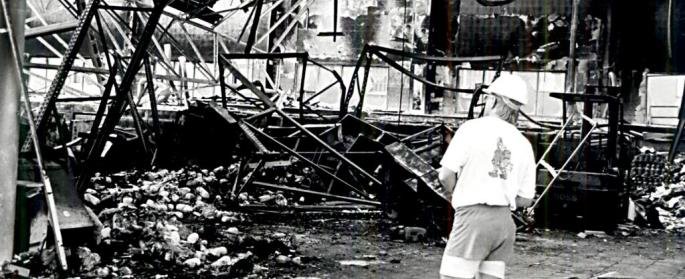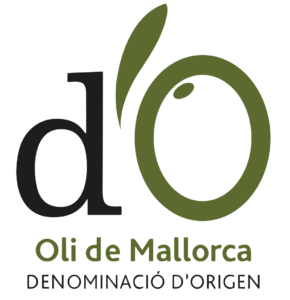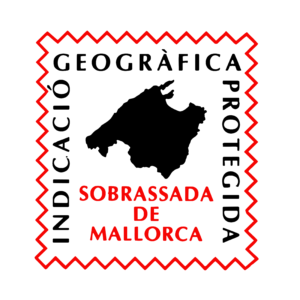En el Mediterráneo occidental se alza la soleada isla de Mallorca. Conocida por sus paisajes idílicos, sus aguas cristalinas y su rica tradición culinaria, entre los muchos tesoros gastronómicos que ofrece esta isla hay uno que destaca tanto por su sencillez como por su historia: las galletes d’oli (galletas de aceite de oliva). Estas galletas, elaboradas con aceite de oliva, han sido un alimento básico desde tiempos inmemoriales, especialmente apreciado por los marineros que surcaban las aguas del Mediterráneo.

La galleta d’oli no es sólo un producto; es un vínculo tangible con el pasado. Originarias de Mallorca, estas galletas tienen una historia que se remonta a la época de los marineros, cuando los viajes por mar eran largos y peligrosos, y la necesidad de alimentos nutritivos y de larga duración era crucial. Las galletes d’oli se convirtieron en un componente esencial de la dieta de los marineros, gracias a su capacidad para conservarse durante largos periodos sin perder su sabor ni sus propiedades nutritivas.
Desde sus humildes comienzos como sustento de los marineros hasta convertirse en un símbolo de la cultura mallorquina, las galletes d’ oli han demostrado ser un producto de éxito intemporal. Su historia es una mezcla de tradición, supervivencia y amor por los ingredientes locales, que se mantiene viva hasta nuestros días en cada crujiente bocado.
Origen e historia
Las galletes d’oli tienen su origen en la Mallorca de antaño, una época en la que los marineros de la isla se enfrentaban a largas y arduas travesías por el Mediterráneo. Necesitaban alimentos duraderos, fáciles de transportar y que no se estropearan con el tiempo. De ahí surgieron las galletes d’oli. Estas galletas, elaboradas principalmente con harina, agua, sal y aceite de oliva, cumplían todos estos requisitos.
Una interesante anécdota cuenta cómo un grupo de marineros mallorquines, atrapados en una tormenta en alta mar, encontraron refugio en una pequeña isla deshabitada. Con escasas provisiones, confiaron en las galletes d’oli que llevaban consigo para sobrevivir hasta que pudieron regresar a casa. Esta historia se ha contado durante generaciones, subrayando la importancia de estas galletas en la vida de los marineros.
En aquella época, las galletes d’oli no eran sólo un alimento, sino que representaban una conexión con el hogar. Las familias mallorquinas preparaban grandes cantidades de estas galletas antes de que sus seres queridos zarparan, asegurándose de que se llevaran un trozo de Mallorca en sus viajes. Con el tiempo, la receta se perfeccionó y se convirtió en parte integrante de la dieta de la isla, tanto en tierra como en el mar.
Estas galletas no sólo eran prácticas por su durabilidad, sino que también aportaban energía y nutrientes esenciales. El aceite de oliva, un ingrediente abundante y de gran calidad en Mallorca, les daba un sabor característico y aportaba grasas saludables, esenciales para los marineros durante sus largas travesías.
La sencillez y eficacia de las galletes d’oli las convirtió en un alimento popular no sólo entre los marineros, sino también entre los campesinos y otros trabajadores de la isla. Así, lo que empezó siendo una solución práctica para los marineros se convirtió en un símbolo culinario de la cultura mallorquina.
El sabor del pasado: la preparación tradicional de las Galletes d'Inca
La elaboración de las galletes d’oli es un proceso que ha perdurado a lo largo de los siglos, manteniendo su esencia sencilla pero profundamente arraigada en la tradición mallorquina. Los ingredientes básicos son pocos y accesibles: harina, agua, sal y, por supuesto, el preciado aceite de oliva de la isla.
Para preparar estas galletas, primero se mezcla la harina con el agua y la sal, creando una masa suave y manejable. El aceite de oliva, un elemento clave, se añade cuidadosamente, no sólo para unir la masa, sino también para infundirle el sabor característico que distingue a las galletes d’Inca. La masa se amasa hasta que adquiere una consistencia uniforme y, a continuación, se extiende en una fina capa. Utilizando moldes tradicionales, las galletas se cortan en formas típicas, a menudo redondas o cuadradas.
Las galletes d’ Inca se hornean a temperatura moderada hasta que están doradas y crujientes. El aroma que emana del horno durante la cocción es inconfundible y evoca recuerdos de generaciones pasadas. Este proceso artesanal es un legado que muchas familias mallorquinas han mantenido vivo, adaptando algunas técnicas a los tiempos modernos, pero sin perder la esencia original.
Hoy en día, aunque existen versiones comerciales, muchas familias siguen elaborando sus propias galletes d’Inca en casa, especialmente durante las fiestas. Estas galletas no son sólo un alimento, sino también un vínculo con el pasado y una forma de compartir el rico patrimonio cultural de Mallorca con las nuevas generaciones.
La sencillez de los ingredientes y el proceso de elaboración reflejan la vida sencilla y trabajadora de los habitantes de la isla, que con ingenio y cariño consiguieron crear un alimento que ha resistido el paso del tiempo, convirtiéndose en un símbolo perdurable de la identidad mallorquina.
Newsletter
¡Déjanos inspirarte con el Mediterráneo más auténtico! ¡Suscríbete a nuestro boletín y sumérgete cada mes en las ricas tradiciones y los exquisitos productos de Mallorca!
El verdadero poder de las galletes d'Oli
Los mallorquines son muy aficionados a las galletas d’Inca. Es muy habitual que las lleven consigo cuando viajan, ya sea por trabajo, vacaciones o simplemente para visitar a familiares y amigos que viven fuera de la isla.
Son varias las razones por las que estas galletas son tan apreciadas y se convierten en un compañero de viaje: su sabor único y tradicional, gracias a la combinación de ingredientes sencillos pero de gran calidad y a su elaboración artesanal; su versatilidad, ya que se pueden degustar a cualquier hora del día; su durabilidad y conservación, ideales para viajar; y su valor como regalo y recuerdo de la cultura y gastronomía mallorquina.
Pero su verdadero poder reside en su capacidad para evocar emociones. Morder una galleta d’oli llena el corazón del mallorquín de nostalgia, de añoranza del hogar y de los seres queridos que allí le esperan. Es un sabor que les conecta con su esencia, que les recuerda quiénes son y de dónde vienen.
Por eso no es de extrañar que estas humildes galletas se hayan convertido en un tesoro para los mallorquines que viajan lejos de su isla. Son un vínculo tangible con su tierra natal, un amuleto que les protege y reconforta en tierras extranjeras. Y cuando por fin vuelven a casa, el sabor de las galletas d’oli es el primer bocado que les da la bienvenida, el sabor que dice «has vuelto a casa».
Legado y evolución: las galletes d'Oli a través de los tiempos
Las galletes d’oli han recorrido un largo camino desde sus orígenes en las despensas de los marineros mallorquines. A lo largo de los años, su receta se ha transmitido de generación en generación, manteniéndose fiel a la tradición pero adaptándose a los gustos y necesidades actuales.
Con la evolución de la sociedad y la mejora de las condiciones de vida, las galletes d’oli dejaron de ser exclusivamente un alimento de supervivencia para convertirse en un elemento habitual en los hogares mallorquines. Las recetas se diversificaron y las amas de casa empezaron a experimentar con nuevos ingredientes y sabores. Algunas incorporaron semillas de anís o sésamo para darles un toque distintivo.
Una anécdota interesante sobre la evolución de las galletes d’oli es la historia del horno Can Coll de Palma, uno de los más antiguos de la ciudad. Fundado en el siglo XIX, Can Coll ha sido testigo de cómo las galletas han pasado de ser un alimento básico a convertirse en un producto gourmet. Durante las décadas de 1950 y 1960, cuando el turismo empezó a florecer en Mallorca, los visitantes extranjeros descubrieron estas delicias y empezaron a llevárselas a sus países de origen, aumentando su popularidad internacional.
Hoy, las galletes d’oli no sólo se encuentran en los hogares y comercios locales, sino también en los mercados internacionales. Su exportación ha permitido que este emblemático producto mallorquín llegue a un público más amplio, consolidando su lugar en la gastronomía mundial.
En definitiva, las galletes d’Inca han evolucionado con el tiempo, adaptándose a nuevos contextos y paladares, pero siempre manteniendo su vínculo con las raíces y tradiciones de Mallorca. Este legado continuado garantiza que las galletes d’oli sigan siendo un símbolo perdurable de la identidad cultural mallorquina, apreciado tanto por los mallorquines como por visitantes de todo el mundo.
Las adaptaciones modernas de las galletes d’Inca también han propiciado su inclusión en la alta cocina. Chefs de renombre han reinterpretado la receta tradicional, utilizando técnicas innovadoras y presentándolas con elegancia en sus menús. Sin embargo, a pesar de estas reinterpretaciones, la esencia de las galletes d’oli sigue siendo la misma: una celebración de ingredientes sencillos y de alta calidad.
El impacto cultural de las galletes d'Oli en la sociedad mallorquina
Las galletes d’oli son mucho más que un alimento en Mallorca; representan un símbolo cultural y un motor económico para la región. Su impacto en la sociedad mallorquina es profundo, desde la conservación de las tradiciones culinarias hasta su contribución al turismo y a la economía local.
Importancia cultural
Las galletes d’oli forman parte integrante de la identidad mallorquina. Están presentes en fiestas, reuniones familiares y actos comunitarios. En muchas familias, la receta de las galletes d’oli se transmite de generación en generación, convirtiéndose en un ritual que refuerza los lazos familiares y mantiene vivo el patrimonio cultural de la isla.
Una anécdota que ilustra su importancia cultural es la celebración de la Festa de Sant Antoni en enero, cuando muchas familias se reúnen para preparar y compartir las galletes d’ oli. Durante esta fiesta, es habitual que los más jóvenes aprendan de los mayores el arte de hacer estas galletas, asegurando así la continuidad de la tradición.
Papel en la gastronomía local
Las galletes d’oli ocupan un lugar destacado en la gastronomía mallorquina. Son un acompañamiento habitual de las comidas y se sirven en muchos restaurantes de la isla, tanto en su forma tradicional como en versiones contemporáneas. Este reconocimiento ha llevado a los cocineros locales a innovar, utilizando las galletes d’oli como base de nuevos platos y postres.

El incendio de Quely: cómo Mallorca se unió ante la adversidad
La noche del 16 de agosto de 1993, la localidad de Inca, en el corazón de Mallorca, se vio sacudida por un incendio que destruyó la fábrica de Quely, un nombre que, aunque quizás le resulte desconocido, representa mucho más que una simple fábrica de galletas en esta isla mediterránea. Quely es sinónimo de tradición y parte arraigada de la vida cotidiana de Mallorca. Las galletes d’oli de Quely son un emblema culinario local, y la fábrica era a la vez un pilar económico y cultural de la región.
El incendio, que se declaró por la noche, se propagó rápidamente, destruyendo gran parte de las instalaciones. Las llamas consumieron maquinaria, almacenes y oficinas, dejando una escena desoladora. Aunque no se registraron víctimas humanas, el golpe para la empresa y la comunidad fue profundo. La fábrica, que había sido un símbolo de la calidad y la tradición mallorquinas, quedó en ruinas, y la producción de las queridas galletas se detuvo abruptamente.
Lo que siguió a esta tragedia fue un conmovedor testimonio de solidaridad y resistencia. La respuesta de la sociedad mallorquina fue rápida y ejemplar. La comunidad, profundamente afectada por la pérdida de Quely, se movilizó para ayudar a la empresa a superar el desastre. Los habitantes de Inca y sus alrededores, junto con los empleados y socios de Quely, se unieron para ofrecer su apoyo y solidaridad.
En un gesto de unidad sin precedentes, los vecinos empezaron a organizarse para aportar recursos y mano de obra para la reconstrucción. Empresas locales, proveedores y antiguos trabajadores se movilizaron, no sólo para donar dinero, sino también para ofrecer sus servicios y los materiales necesarios para restaurar la fábrica. Este movimiento de apoyo fue tan generalizado que los informativos locales describieron la situación como una «ola de solidaridad».
Se organizaron campañas de recaudación de fondos y actos benéficos para reunir el dinero necesario para reconstruir las instalaciones. En cuestión de meses, la comunidad había reunido los recursos necesarios para iniciar la reconstrucción, y el proceso de restauración se convirtió en un esfuerzo colectivo en el que participó toda la isla.
La reconstrucción de la fábrica no fue sólo un acto de recuperación económica; fue una reafirmación del profundo vínculo entre Quely y Mallorca. Cada ladrillo puesto en el nuevo edificio, cada máquina reinstalada, representaba el compromiso de la comunidad de preservar una parte importante de su identidad. Cuando la fábrica reabrió sus puertas, lo hizo con energías renovadas y con el respaldo de una comunidad que había demostrado su fortaleza y unidad en tiempos de crisis.
Hoy, las galletes d’oli de Quely siguen siendo un símbolo de la resistencia de Mallorca. Cada bocado de estas galletas recuerda el espíritu indomable de una comunidad que se unió ante la adversidad para salvar una parte crucial de su patrimonio cultural y económico. Para los visitantes de Mallorca, Quely no es sólo un nombre; es un testimonio del poder de la comunidad y de la capacidad de superar los retos cuando todos trabajan juntos.
Otros artículos que pueden interesarle

Vitt vin från Mallorca
Mallorcas vita viner är en livfull uppvisning av öns varierade vinodlingspalett. Vinerna har skapats i Mallorcas idylliska medelhavsmiljö och tar

Havssalt från Mallorca, ett av de 8 bästa salterna i världen
Flor de Sal de Mallorca är ett rent och hantverksmässigt salt som är känt för sin lätta och flingiga konsistens
Últimos artículos publicados
Havssalt från Mallorca, ett av de 8 bästa salterna i världen
Flor de Sal de Mallorca är ett rent och hantverksmässigt salt som är känt för sin lätta och flingiga konsistens
Sal marina de Mallorca, una de las 8 mejores sales del mundo
La Flor de Sal de Mallorca es una sal pura y artesanal conocida por su textura ligera y escamosa y









